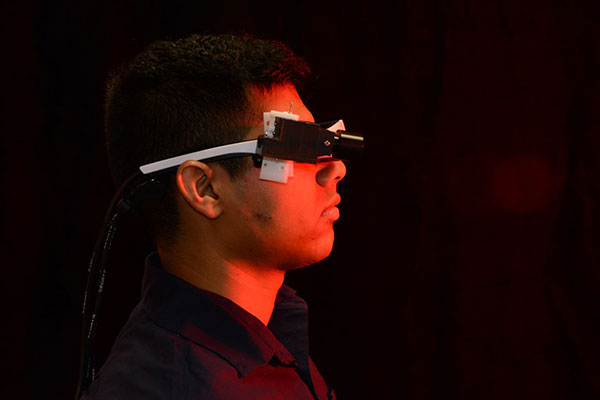It's easy to start your application.
Master's & Certificate Programs
Graduate Certificate in Imaging Science & Engineering

A certificate program in Imaging Science & Engineering (IS&E) is offered jointly by the departments of Electrical & Systems Engineering, Computer Science & Engineering, and Biomedical Engineering.
Built on the strengths in imaging science throughout the university, this multidisciplinary program is constructed to expose students to the breadth of imaging research activities at Washington University. The requirements of the program vary by department, but are flexible in allowing students and their advisers to construct academic programs ideally suited to complement their individual research programs. Students in the program are brought together for a joint seminar course, and all students engage in a practicum in imaging science and engineering.
Entering and Completing the Program
Graduate students in participating departments may apply for admission to the IS&E program. Admission requires graduate standing in a participating department, a demonstrated interest in aspects of imaging, and approval of the program director.
Upon being awarded a graduate degree by their home department and completing certain requirements of the program, students are awarded a certificate indicating their successful participation in the IS&E program in addition to having completion of the certificate program posted on their official transcript. The requirements for receiving a certificate are acceptance into the IS&E program, completion of four imaging courses approved by the program director, completion of the requirements for a graduate degree in the student's home department, and participation in the IS&E seminar required for all students in the IS&E program.
Seminars by faculty in imaging science, others at Washington University, and experts from outside the university convey new developments and directions in the field of imaging science and its applications. These seminars also provide the opportunity for interactions among those involved in the program.
Courses of Instruction
Fundamentals underlying imaging science and engineering and the application of these fundamentals to contemporary problems of importance form the theme of the program. Relevant courses come from across the university. The program is flexible, allowing students — in consultation with their advisors and the program director — to design a program that is best for them. Below are representative courses that students in the program take.
Required seminar for Certificate
- ESE 596 Seminar in Imaging Science and Engineering
- Or BME 506 Seminar in Imaging Science and Engineering
- Or Physics 596 Research
Courses in the Imaging Sciences Pathway in the Division of Biology and Biological Sciences
- BME 530A Molecular Cell Biology for Engineers
- ESE 589 Biological Imaging Technology
- Or BME 589 Biological Imaging Technology
- Biol 5068 Fundamentals of Molecular Cell Biology
- Biol 5146 Principles and Applications of Biological Imaging
- Biol 5147 Contrast Agents for Biological Imaging
- Or Chem 5147 Contrast Agents for Biological Imaging
- ESE 438 Applied Optics
- ESE 520 Probability and Stochastic Processes
- ESE 524 Detection and Estimation Theory
- ESE 582 Fundamentals and Applications of Modern Optical Imaging
- ESE 589 Biological Imaging Technology
- ESE 591 Special Topics: Biomedical Topics I: Principles
- ESE 5931 Mathematics of Imaging Science
- ESE 5932 Computational Methods for Imaging Science
- ESE 5933 Theoretical Imaging Science
- ESE 5934 Practicum in Imaging Science
- ESE 596 Seminar in Imaging Science and Engineering (required)
Courses in Computer Science & Engineering
- CSE 517A Machine Learning
- CSE 546T Computational Geometry
- CSE 554A Geometric Computing for Biomedicine
- CSE 555A Computational Photography
- CSE 559A Computer Vision
Courses in Biomedical Imaging
- BME 494 Ultrasound Imaging
- BME 506 Seminar in Imaging Science and Engineering (required)
- BME 530A Molecular Cell Biology for Engineers
- BME 570 Mathematics of Imaging Science
- BME 5820 Fundamentals and Applications of Modern Optical Imaging
- BME 589 Biological Imaging Technology
- BME 591 Biomedical Optics I: Principles
- BME 592 Biomedical Optics II: Imaging
- BME 594 Ultrasound Imaging
Courses in Chemistry, Physics and Psychology
- Chem 435 Nuclear and Radiochemistry Laboratory
- Chem 436 Introduction to the Atomic Nucleus
- Chem 576 Magnetic Resonance
- Chem 5762 Electron Spin Resonance and Dynamic Nuclear Polarization
- PHYS 534 Magnetic Resonance
- PHYS 589 Selected Topics in Physics I
- PHYS 590.1 Seminar-Physics of Ultrasonic Imaging in Cardiovascular Medicine
- Psych 4450 Functional Neuroimaging Methods
